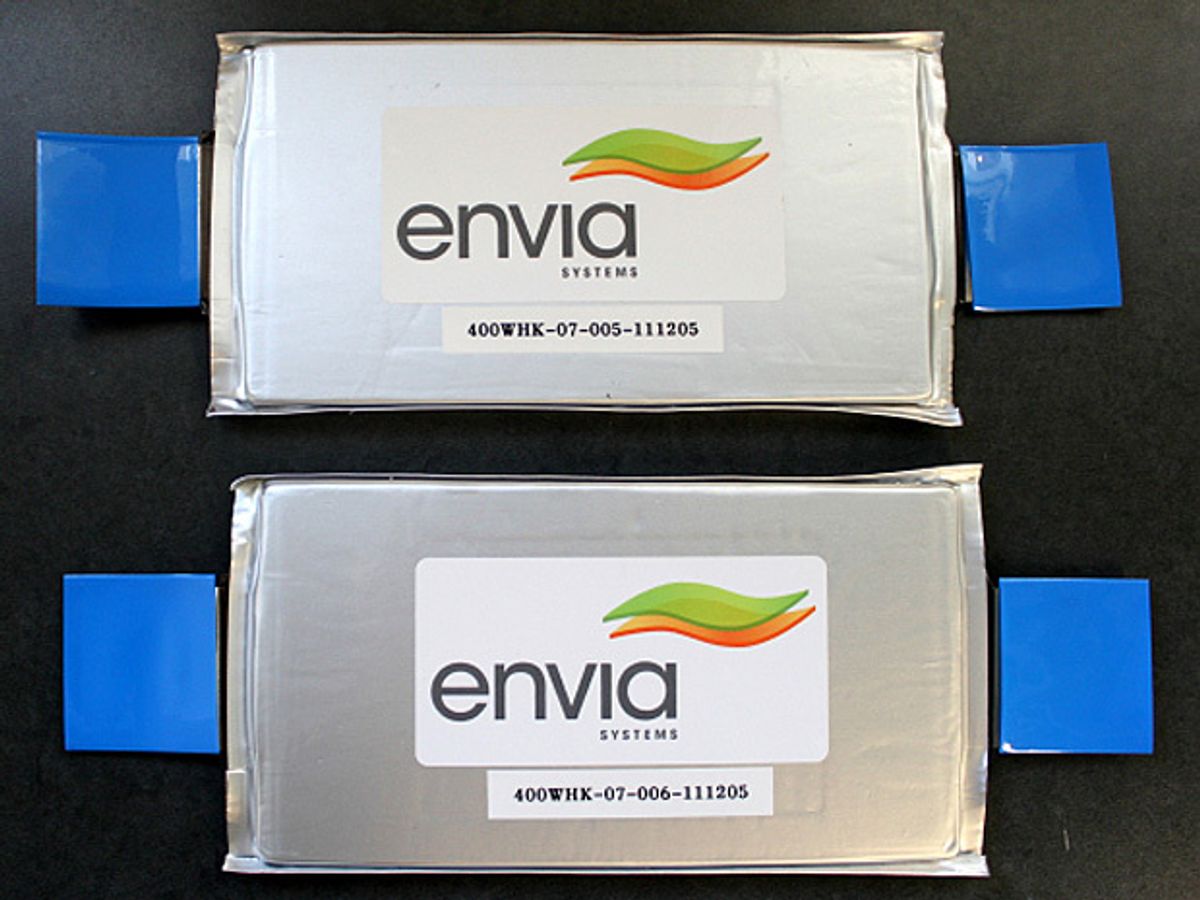Early last year the Bay Area startup Envia Systems momentarily got a lot of attention with claims that it had developed a lithium ion battery with three times the energy density and perhaps half the electricity cost of standard lithium ion batteries on the market. (We advised caution at the time) Now Envia stands accused by three former executives of having stolen intellectual property, misrepresenting itself to investors … and of firing them when they started to raise embarrassing questions.
Dana Hall of the San Jose Mercury News reported the rather sensational developments concerning Envia a week ago, noting that the company had received $4 million in funding from ARPA-E and an investment from GM, which hoped to license the technology if it panned out. Subsequently, GigaOm's Katie Fehrenbacher picked up on the allegations about Envia and discussed them in some detail.
This is not the first time Envia has stood accused of misrepresenting itself. Last year the tech business blogger John Petersen pointed out that the company had doctored a chart from Lux Research, to make itself stand out more from competitors. Interestingly, however, Lux itself is reserving judgment about the new charges against Envia.
Lux notes that both Envia and the company it allegedly stole IP from were trying to further develop a technology pioneered at Argonne National Laboratory (ANL) . "Both NanoeXa [the alleged victim company] and Envia had tried to improve upon ANL’s technology, but only Envia successfully patented the work," notes Lux. "The courts will have to determine whether any stolen IP played into these developments, but it’s certainly not a given that NanoeXa’s claims are true."
Of course we are no more able than Lux to pass judgement on the details of the case. However, we stand by our previous warning that any supposedly revolutionary development in storage technology should be treated with extreme caution.



